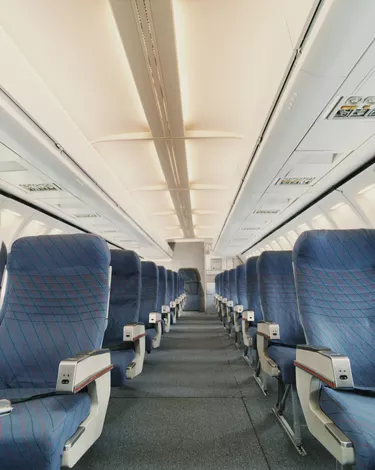
According to the 2012 annual report of the International Air Transport Association, or IATA, airlines made a $7.9 billion profit in 2011. And although that seems like a significant number, the IATA reports that it is only half of the $15.8 billion in profits the airlines made in 2010. While profitability is the primary objective of any business, airlines also have to grapple with industry-specific ethical challenges in their pursuit of revenue and profits.
Overbooked Flights
Video of the Day
The practice of "bumping," or refusing to let certain passengers board a plane even if they have a confirmed reservation, is the result of airlines overselling flights. According to Southwest Airlines' website, airlines overbook to fill empty seats left by passengers who either cancel or don't show up for their flight. If all passengers do show up, the airlines ask passengers to volunteer to take a later flight. If enough people don't volunteer, the airlines bump passengers off the flight, beginning with those who don't have a boarding pass. Passengers are compensated for being involuntarily booted off the plane, but the inconvenience to passengers poses an ethical challenge to airlines that want to make the most money possible from each flight.
Video of the Day
Cramped Seats
In another attempt to offset their operating costs, airlines place as many seats as possible on their airplanes, which has led to cramped conditions in the passenger cabin over the years. These extremely confining seats are uncomfortable and may increase a passenger's risk of developing certain medical problems. Mayo Clinic's Jan Stepanek, M.D., warns that sitting in a cramped space and being immobile for a significant amount of time increases the risk of developing blood clots, also known as deep vein thrombosis, as the muscles in the lower extremities cannot contract.
False Advertising
Failure to fully disclose prices is another ethical issue for airlines. According to Janice Hough in the Consumer Traveler website, one airline advertised a roundtrip flight from Newark to London for only $236. However, once the tax and fuel surcharges were added, the total ticket price was $803. Hough laments the dishonesty of such bait-and-switch tactics and notes that they allow the airlines to pay a lower amount in travel agent commissions.
Discrimination
The way airlines handle overweight passengers sometimes raises ethical questions. A November 2012 article in the "New York Post" reports the death of an obese New York woman denied space on three different return flights from Hungary over seven days due to her weight. The woman, who weighed approximately 425 pounds and used a wheelchair, gained water weight during the month she visited in Hungary due to a combination of kidney disease and diabetes. She was assigned multiple seats on each flight, but the airline asked her to leave the plane on each occasion, saying it did not have an extension to secure her in the seats. The woman died in Hungary nine days after being booted from the first plane, and her husband claimed her death was a result of not being able to return home for medical treatment.